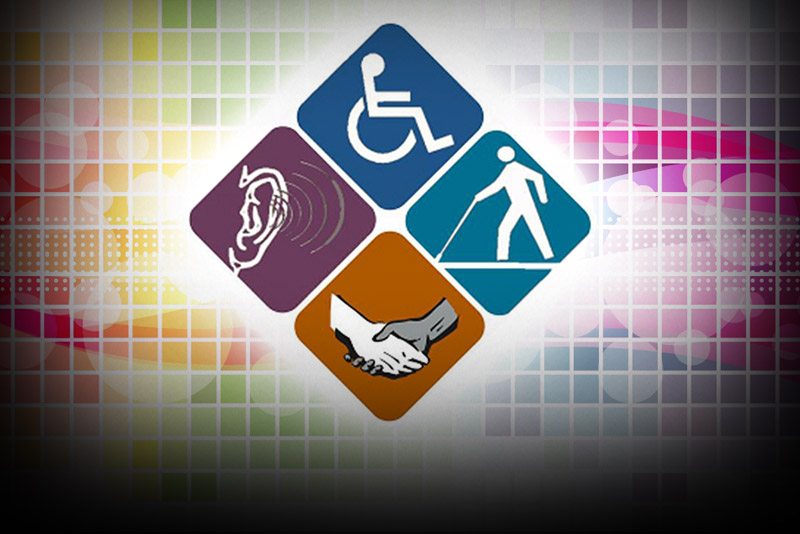How Marijuana Business Websites are Impacted by the Americans with Disabilities Act
Older people, or people with disabilities, account for 57 percent of all Internet users. Furthermore, these people are the fastest growing customer group for marijuana businesses. The medical benefits of marijuana is a major reason why medical marijuana is now legal in 23 states. Marijuana can help people who suffer from diseases feel better, and get much needed relief, from a variety of chronic illnesses. Your website is the main way these people will find your business. However, if your website is not ADA accessible, you are not visible to these potentially lucrative customers. What is an”ADA accessible website? Why is it important to have one?
In July of 2010, the Obama administration declared that the ADA Act (American Disability Act) also applies to the Internet, and ALL websites. All websites are required to be ADA accessible. Some large companies have already been sued successfully. It is a matter of time before smaller businesses are targeted. With Marijuana being illegal on a Federal level, marijuana businesses might be targeted more quickly for legal action, than other businesses.
The consequences for ignoring ADA requirements for your website can be costly. Failure to do so can result in a $50,000 fine and class action lawsuits. In California, each instance of non-compliance is punishable by minimum damages of $4,000, plus legal fees. Class action lawsuits can multiply the damages dramatically. Most states have multiple disability laws, so it is important that your website meets ADA compliance immediately.
People with disabilities interact with websites and online shopping carts differently than people not affected by disabilities. All types of disabilities need to be considered when setting up your marijuana business website such as: visual impairments (blindness, low vision, color blindness), hearing impairments, physical disabilities, speech disabilities, cognitive disabilities, and multiple disabilities. Age-related disabilities such as arthritis, hearing loss, and vision loss should also be factored in when making your website ADA compliant.
People with disabilities use a number of special tools to interact with websites such as: screen readers, speech recognition software, touch screen devices, captioning devices (for video content), Braille, screen magnifiers, alternative keyboard devices, and head pointers. It is important to make sure your website complies with standards that make it possible for those with diverse disabilities to successfully interact with your website.
How to make your marijuana business website ADA compliant:
There are several phases to go through to make a website ADA compliant. First, it is important to have your existing website evaluated for ADA compliance. Have this evaluation done by a company that specializes in ADA compliance for websites and the Internet. Most existing websites will not pass a detailed ADA evaluation. Depending on the results of your professional ADA inspection, you will either have to make necessary changes to your existing website, or have it redesigned to meet ADA compliance.
Designing and/or changing a website to be ADA compliant is a deliberate process which should only be performed by a website design firm that fully understands ADA compliant regulations. Do not assume your current website marketing firm comprehends all the details involved in becoming ADA compliant!
Website requirements to meet ADA compliance:
- Design your website design with a consistent & clean layout for both content and navigation throughout all pages.
- Use clear and consistent language on your website.
- Use clear color contrast between text and images on your website.
- Your website should be designed using valid CSS and be able to pass W3C (World Wide Web consortium) tests for errors.
- A person with motor disabilities should be able to navigate your website using just the keyboard.
- Alt tags (with correct text descriptions) must be used for all images & any visual content on your website. Alt tags also have to be manually evaluated and changed so that they make sense to someone with disabilities. This process is critical for ADA compliance!
- Implement “audio CAPTCHA” elements for website forms that require the typing of any code to complete a form submission.
- Make sure any YouTube videos have proper alternative captioning.
- Make sure your social media accounts are considered, such as Facebook, Twitter, etc. For example, there is a Twitter program, “Accessible Twitter,” that assists those with disabilities.
- Make sure your mobile websites also use valid CSS with clear and concise language.
- Make sure those with disabilities can access your online specials, online banners, email specials, and other unique offers.
Conclusion:
Making your website ADA accessible is the law. The good news is that it also opens your doors to more business. To make sure your website meets the necessary ADA compliance standards hire a marketing agency that is experienced in guiding you through the ADA process. These firms employ an ADA compliance experts, that will review your website. ADA experts are much better at evaluating the consistency of your website. Once your website is evaluated your marketing firm can implement the necessary code changes. Finally, it is important that you website remain ADA accessible over time.
Digital 303 has over 4 years experience in consulting, website coding, and helping business websites become ADA Accessible. For more information call 800-420-9694 for a free consultation.

